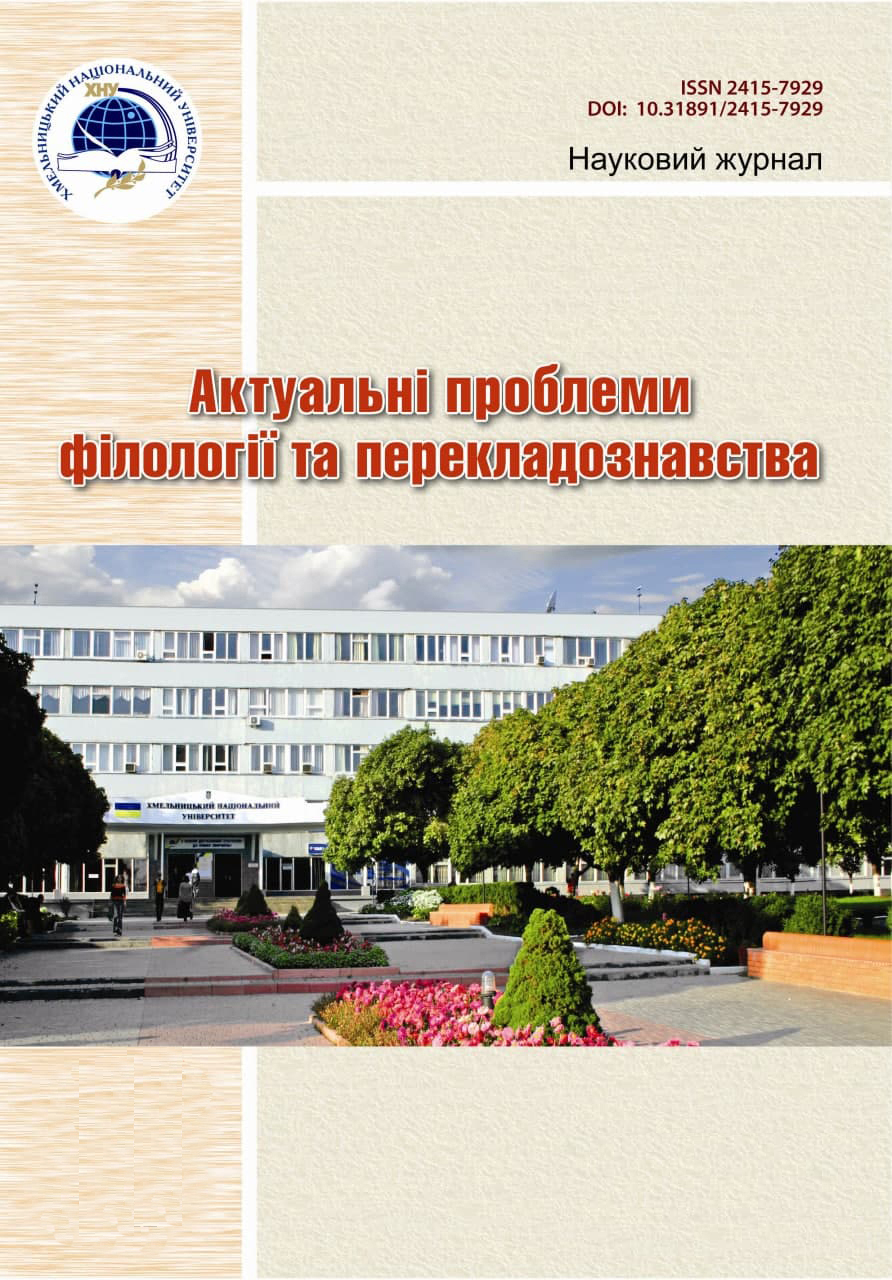GERMAN INFINITIVE IN THE SYSTEM OF PARTS OF SPEECH
DOI:
https://doi.org/10.31891/2415-7929-2019-19-4Keywords:
infinitive, noun, verb, grammatical categories, syntactic functionsAbstract
The article deals with the main features of the infinitive, the specifics of its grammatical and syntactic functions in modern German language. It is found out that the infinitive has partial properties of both the verb and the noun. Therefore, the infinitive is considered a morpho-syntactically hybrid phenomenon, which is between the noun and the verb in the classification of parts of speech.
The author proves that although infinitive and differs from a verb that it has no personal forms and the form of number, however as well as a verb expresses an action, process or state, has grammatical categories of time and state. The concept of infinitive time is special, because it does not express absolute time, but only the temporal ratio of actions. This time value is expressed in two forms Infinitive Present / Infinitive I and Infinitive Perfect / Infinitive II. The use of Infinitive I is responsible for the simultaneity or continuity of action, and Infinitive II for premature action. The grammatical category of the state of the German infinitive has six different forms: Infinitive I Active, Infinitive II Active, Infinitive I Passive, Infinitive II Passive, Infinitive I Stative, Infinitive II Stative. The affinity of the infinitive to the verb can be traced in the possibility of the formation of analytical verb forms (Future I, Future II, Conditional I, Conditional II), as well as in the function of the predicate in the sentence.
As a result of the research it has been found that as well as a noun, the infinitive can express an action, process or state without specifying the person, number, method and time, it is easily substantivized and performs the appropriate syntactic functions.
The analysis allows us to assert the powerful potential of the infinitive in the syntactic context, because it can perform the functions of both the main members of the sentence (subject, predicate) and secondary (object, attribute, adverbial modefier). This syntactic polyfunctionality of the infinitive distinguishes it from verb finite forms, which act only as a predicate.
Downloads
Published
Issue
Section
License
Copyright (c) 2020 С. КОРОЛЬ (Автор)

This work is licensed under a Creative Commons Attribution 4.0 International License.

